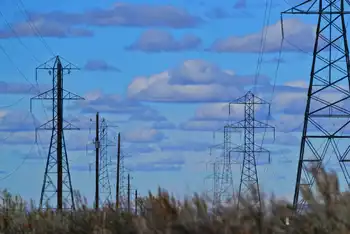Newfoundland announces new net metering policy framework
By Government of Newfoundland and Labrador
Protective Relay Training - Basic
Our customized live online or in‑person group training can be delivered to your staff at your location.

- Live Online
- 12 hours Instructor-led
- Group Training Available
Once the framework is fully implemented by the utilities, customers will be able to feed power into the distribution system during periods when they generate excess power and draw power from the grid when their generation does not fully meet their needs.
“The Provincial Government is committed to further diversifying the province’s electricity supply mix with renewable sources of energy. By implementing this new policy framework, we are fulfilling one of the province’s long-term Energy Plan commitments – to provide the regulatory support to develop and implement a net metering policy for small-scale renewable energy sources. In addition, the new policy framework will provide guidance for Newfoundland Power and Newfoundland and Labrador Hydro to develop their applications for net metering programs for submission to the Board of Commissioners of Public Utilities. We are confident this new policy will provide value while protecting the ratepayers,” says The Honourable Derrick Dalley, Minister of Natural Resources.
The Government of Newfoundland and Labrador is responsible for providing the policy, legislative and regulatory framework under which net metering programs will be developed by the utilities and reviewed by the regulator. The Provincial Government worked with Newfoundland and Labrador Hydro and Newfoundland Power to develop this policy framework, and will continue to work with them and the regulator to monitor and evaluate the new policy and the net metering programs made available to customers.
Details of the policy framework can be found in the backgrounder below.
“Newfoundland and Labrador Hydro is committed to supporting clean, renewable energy and welcomes the addition of a new metering policy. We look forward to developing a net metering program which will ultimately enable our customers to offset their own power requirements from the grid and support environmental sustainability," Rob Henderson, Vice President, Newfoundland and Labrador Hydro.
In 2014, the Provincial Government hired Navigant Consulting Limited to research relevant standard industry practices and to provide guidance on developing a net metering policy which would give customers the option to displace their electricity requirements with their own renewable energy sources. Navigant Consulting LimitedÂ’s final report was released to the public on December 11, 2014.
“Newfoundland Power is pleased that the Government of Newfoundland and Labrador has established a net metering policy framework. Based on this framework, and in collaboration with Newfoundland and Labrador Hydro, we will now develop a net metering program, including eligibility requirements and technical specifications. The net metering program will subsequently be submitted to the Board of Commissioners of Public Utilities for approval prior to implementation," says Gary Murray, Vice President of Engineering and Operations.
Government of Newfoundland and Labrador Net Metering Policy Framework
The Provincial GovernmentÂ’s new net metering policy will allow utility customers with small-scale generating facilities to generate power from renewable sources for their own consumption. They will be able to feed power into the distribution system during periods when they generate excess power and draw power from the grid when their generation does not fully meet their needs.
Key elements in the net metering policy framework include:
- Eligibility is limited to small-scale renewable energy sources
- The programs will be available to domestic and general service commercial customers
- Individual renewable generation systems will be limited up to a maximum of 100kW and cannot be sized beyond a customerÂ’s load
- Meter aggregation is not permitted only one metering point per account and property
- A customerÂ’s net consumption will be billed using retail rates that are consistent with those that apply to a non-net metering customer of the same size, type and location
- A customerÂ’s net excess generation will be credited at the end of a billing period for example, monthly as a kWh credit
- Annually, net excess generation will be settled with a cash payment or bill credit at the retail rates that are used to determine the bill for the customerÂ’s net consumption. Whether it is a cash payment or bill credit will be proposed by the utilities and subject to PUB approval
- The program will have a provincial cap of five megawatts MW and
- Following implementation, the Provincial Government, in consultation with the utilities and the PUB, will monitor and review the policy framework and the utilitiesÂ’ net metering programs.











